Public Health News
Syracuse Lead Study continues recruitment
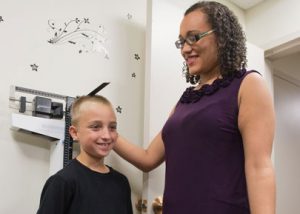 The Department of Public Health, Food Studies and Nutrition at Syracuse University’s Falk College continues to actively recruit for the Syracuse Lead Study. Eligible zip codes are 13202, 13203, 13204, 13205, 13206, 13207, 13208, 1321, 13211, 13212, 13214, 13215, 13219, 13224, and 13057. The study is examining environmental toxins (lead) that collect in our system and how that impacts stress response and cardiovascular health.
The Department of Public Health, Food Studies and Nutrition at Syracuse University’s Falk College continues to actively recruit for the Syracuse Lead Study. Eligible zip codes are 13202, 13203, 13204, 13205, 13206, 13207, 13208, 1321, 13211, 13212, 13214, 13215, 13219, 13224, and 13057. The study is examining environmental toxins (lead) that collect in our system and how that impacts stress response and cardiovascular health.
“We currently have 270 participants and recruitment will continue until we reach our goal of 300 participants,” says Dr. Brooks Gump, Principal Investigator for the Syracuse Lead Study and Falk Family Endowed Professor at Syracuse University. In addition to residence in the outlined zip codes, participants need to be 9, 10 or 11 years of age and consider their race as black or white. Siblings are eligible for participation. Children and their parents/guardians will be compensated for their time with a stipend of up to $150.00.
The study consists of two appointments that involve a blood draw, collection of hair and urine samples, body measurements, two echocardiograms, questionnaires and computer games. Visit appointments will occur on and off-campus and will take approximately seven hours in total. For more information about the Syracuse Lead Study please call (315) 443-4907 or visit our website at syracuselead.syr.edu
Associate Professor Bergen-Cico assigned to Rotary Peace Fellowship in Thailand
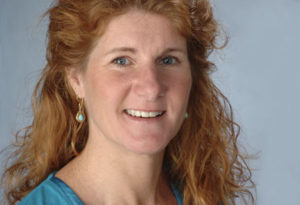
The Rotary Foundation has selected associate professor of public health, Dr. Dessa Bergen-Cico, to receive a 2017 Rotary Peace Fellowship as part of the Rotary Peace Centers program. She has been assigned to the Rotary Peace Center at Chulalongkorn University in Bangkok, Thailand. The three-month program in peace, conflict prevention and resolution begins June 12, 2017.
For the past seven years, Bergen-Cico has been working with the local peace activists, former gang members and the greater Syracuse community to address the impact of violence on trauma and addictions. “I feel that it is more important now, perhaps more than ever, for people to practice non-violence—in our words and actions—and to learn strategies for effectively modeling, teaching and cultivating mediation, negotiation, conflict transformation and non-violence,” says Bergen-Cico.
Bergen-Cico explains that Syracuse has one of the highest poverty and homicide rates in the United States, a result of multiple factors including gang-related violence. Additionally, a substantial refugee population resides in Syracuse, representing many war-torn regions around the world. Furthermore, the city is home to a military veteran population that has also been impacted by violence. “All of these people have been affected by violence and represent how conflict and violence across the globe affects each of us,” Bergen-Cico adds. “Our city is a mirror of the global situation and the work I will be able to advance through my participation this program will be influenced by, and applicable for, many cultures.”
Congratulations Class of 2017!
Dean Diane Lyden Murphy, along with the faculty and staff of Falk College, congratulates the Class of 2017! We are excited to see where your careers take you. Remember that you are “forever orange” and will always be a part of Falk College and Syracuse University.
We invite you to stay in touch and connect through social media, on Instagram, Facebook, Twitter, and LinkedIn.
As alumni, you will now receive FalkTalk, Falk College’s email newsletter for alumni, parents and friends. FalkTalk keeps you up-to-date with news headlines, student highlights, and upcoming events delivered to your inbox at the end of each semester.
Learn how to stay connected to the ‘Cuse Community in regions all around the world
Answer these quick questions on how to reach you after graduation
We have many photos to share that recap some of the celebration events of this past week:
- Falk College Convocation & Reception
- BSSW Awards Celebration
- MSW Graduates Headed to Europe
- Human Development and Family Science Celebration
- Public Health Food Studies and Nutrition Awards Presentation
- Public Health Posters
- Marriage and Family Therapy Graduation Luncheon
- Sport Management Senior Reception
- Convocation photos from Sport Management
Check out more photos of commencement weekend on Collage or at #SUGrad17.
Falk College honors faculty for excellence in service, research, teaching
Bruce Carter, Katherine McDonald, Gina Pauline named 2017 Falk College Faculty of the Year
Faculty members from the Departments of Human Development & Family Science, Public Health, Food Studies & Nutrition, and Sport Management were honored for excellence in service, research and teaching with 2017 Falk College Faculty of the Year Awards. The honorees, who are nominated by their peers for outstanding performance and contributions to students, Falk College, Syracuse University and beyond, were recognized by Diane Lyden Murphy, Dean.
“It is with great joy that we honor professors Bruce Carter, Katherine McDonald, and Gina Pauline.,” says Diane Lyden Murphy. “Falk College is privileged to have faculty like these, who are truly dedicated to the success of our students. We appreciate their many contributions to their respective academic departments, as well as to the college and Syracuse University as a whole.”
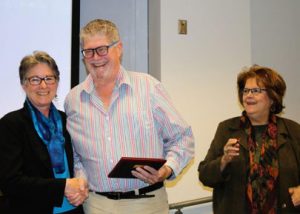
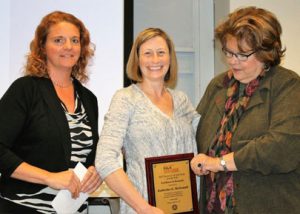
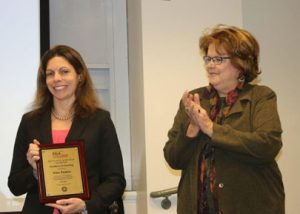
New Public Health B.S./M.S., Public Health B.S./Global Health M.S. programs at Falk
 Falk College announced today that the New York State Department of Education has approved two new programs: the new 150-credit Public Health B.S./M.S. and 144-credit Public Health B.S./M.S. Global Health programs, each designed to provide high-caliber students at Syracuse University with the opportunity to complete a bachelor’s degree in Public Health and a master’s degree in either Public Health or Global Health in five years.
Falk College announced today that the New York State Department of Education has approved two new programs: the new 150-credit Public Health B.S./M.S. and 144-credit Public Health B.S./M.S. Global Health programs, each designed to provide high-caliber students at Syracuse University with the opportunity to complete a bachelor’s degree in Public Health and a master’s degree in either Public Health or Global Health in five years.
Students will attain advanced competencies in public health as the proposed program provides students with additional depth and breadth beyond the bachelor’s degree, and allows them to engage with graduate faculty that they may not otherwise have in their undergraduate studies. In particular, the proposed program will create opportunities for students to design original research projects under the mentorship of public health faculty.
In addition to saving students time and academic-related costs, these programs will improve their career prospects and competitive advantage in the marketplace and thus enhance their marketability. Increasingly, employers are favoring applicants with the additional education and experience that will be obtained by students in these programs.
Public Health B.S./M.S. students complete an internship experience in year 4 and a master’s thesis in year 5. Public Health B.S./Global Health M.S. students complete two internship experiences: a generalist public health internship in year 4 and an international global health internship in year 5. While not required, students will be encouraged to participate in a study abroad experience during their second or third year of study.
Research training program for veterans now accepting applications
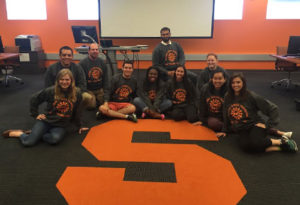 To improve access to undergraduate research experiences in the area of trauma for groups typically underrepresented in this research, including veterans, a collaborative venture between Syracuse University’s Falk College, SUNY Oswego, and SUNY Upstate Medical University is now recruiting students for its 2017 program June 5-29 on the Syracuse campus.
To improve access to undergraduate research experiences in the area of trauma for groups typically underrepresented in this research, including veterans, a collaborative venture between Syracuse University’s Falk College, SUNY Oswego, and SUNY Upstate Medical University is now recruiting students for its 2017 program June 5-29 on the Syracuse campus.
The Undergraduate Trauma Research Training program is a National Science Foundation (NSF) Research Education for Undergraduates (REU) opportunity directed by Brooks B. Gump, Ph.D., MPH, Falk Family Endowed Professor of Public Health, and co-directed by Karen Wolford, Ph.D., Professor Department of Psychology and Coordinator of the Interdisciplinary Graduate Certificate Program in Trauma Studies at SUNY Oswego and includes other faculty from these institutions as well as SUNY Upstate Medical University. This program brings together veterans and non-veterans in a safe environment to pursue trauma research activities.
This month-long immersion program involves coursework, mentored student-faculty interactions, and the development of a research project. Participating students receive a $3,000 stipend for attending the summer session. Room and board are provided free of charge, as needed.
The program, now in its sixth year, draws on personal experiences of veterans who understand the nature and context of traumatic events. By gaining a scientific understanding of trauma, students who complete the program gain essential tools they can use to improve the quality of life for themselves and others, including veterans. Read more about one REU participant’s experience here.
The program is purposefully structured to span one full year. Following the summer program, students continue their research under the mentorship of REU faculty during the Fall semester. Finally, students are expected to present their research at a national conference in Spring, 2018. The travel and registration expense for the conference is provided to the student through this program. For more information about the program, and to submit application for it, click here to go to the Syracuse University REU website or contact Ivan Castro at iecastro@syr.edu. The application deadline has been extended to March 14, 2017.
Falk College alum teaches children self-worth at public health internship
Willis Sanders ‘16 came to snowy Syracuse University from Houston, Texas and declared a major in public health his sophomore year. “I knew that I wanted to help people and potentially save lives,” says Sanders. Recognizing physical health as one of the most basic foundations of life and that social circumstances have a profound impact on health, Sanders knew that a career in public health would give him opportunities to have a positive influence.
As part of its rigorous program accredited by the Council on Education for Public Health, Falk College’s public health students complete a total of 480 hours of service learning work, culminating in the senior capstone internship, a nine-credit, 400-hour hands-on learning experience.
“Community-based learning experiences provide public health majors with opportunities to apply knowledge gained in the classroom to real-world public health challenges,” says public health associate professor and undergraduate director Maureen Thompson, Ph.D. “These are a critical component of the public health program at Falk College.”
Sanders completed his internship at the Central Village Boys and Girls Club of Syracuse, where Sanders worked with inner-city youth. “The children I worked with all came from underrepresented communities. Most did not have dominant male figures in their lives,” says Sanders. “I took this internship as an opportunity to motivate and encourage in these children the importance of self-worth and determination.”
But Sanders put more than his public health skill set into practice during his internship. He and the children starred in a music video for “Believe It,” a song Sanders wrote. “The idea of creating this music video came from my heart. Music has always been a passion of mine and I wanted to share my passion with these children.”
The lyrics speak about overcoming obstacles, not letting others define you, and being determined to succeed. “I wanted to encourage these children to believe in themselves despite the circumstances and situations that they may encounter,” Sanders says. “I wanted to inspire and motivate as many children as I could. I wanted to leave an everlasting impression that will never be forgotten.”
“I’m still trying to figure out exactly what career path I want to take with public health but I am positive that Oncology will be my field of interest,” Sanders explains. “I have family history with numerous relatives that have lost their lives as result of being diagnosed with cancer. I eventually want to find a cure and potentially try to save as many lives, and help as many people as I can.” Sanders graduated in December and plans to start his career at organ donation agency, LifeGift.
Tour the Susan R. Klenk Learning Café and Kitchens
Take a virtual tour of the Susan R. Klenk Learning Café and Kitchens, a new hands-on learning laboratory to prepare students with traditional and emerging professional competencies for careers in food, nutrition, dietetics, and public health. The facility includes an experimental food lab kitchen, commercial kitchen, baking nook and café. A video camera system allows faculty and chef instructors to broadcast classes, food demonstrations and seminars from Falk College to anywhere on campus and across the country.
A generous and visionary gift from Falk College alumna, Susan R. Klenk, made the learning café and kitchens possible. A dual major in the School of Education, Klenk pursued a teaching career with the Syracuse City School District. Because her career always revolved around supporting students to help them be successful, she created the Susan R. Klenk Learning Assistantship in September 2009 that allows them to take a leadership role, provide support for classmates and gain valuable management experience.
“Susan Klenk is a true advocate for student learning and a generous visionary whose on-going support makes Syracuse University an extraordinary place to study food. With the opening of the Klenk Learning Café and Kitchens thanks to Susan’s commitment and support, Falk College, which began offering courses in food and nutrition in 1917, is leading the way in preparing students for expanding career opportunities in food,” says Diane Lyden Murphy, dean, Falk College.
The learning café and teaching kitchens set the stage for industry-leading, forward-thinking approaches to food and culture, nutrition, research, and food studies development. Its design fosters creativity and collaboration across a variety of departments, schools and colleges, creating interdisciplinary partnerships that support teaching innovation, student learning, research and scholarship. In addition to unlimited faculty-supervised hands-on experiences, this dedicated space will provide an ideal environment for student-faculty research projects and educational community partnerships that set the SU programs apart.
Get started on a career path that makes a difference with Nov. 4 Information Session
When students think graduate school, they think curriculum, campus, community, but most of all, what the degree will mean for their lives. It’s not until after completing their degree that Falk College graduate students realize the profound difference it made not just for themselves, but for the lives of those around them as they discover new and exciting opportunities to have a positive impact. That’s what a graduate degree from Falk College means: it means our graduates can do more—more for the community, for society, and for the world. And they do!
Join prospective Falk College graduate students interested in child and family studies, food studies, public health, marriage and family therapy, nutrition science, social work and sport management at Falk’s Graduate Program Information Session on Friday, November 4, 2016 from 4:00 to 6:00 p.m. in Grant Auditorium in White Hall, part of the Falk College Complex.
The presentation will provide detailed information on Falk College graduate programs in:
- Child and Family Studies M.A., M.S., Ph.D.
- Marriage and Family Therapy M.A., Ph.D.
- Addiction Studies M.A.
- Food Studies M.S.
- Global Health M.S.
- Nutrition Science M.A., M.S.
- Public Health M.S.
- Social Work M.S.W.
- Sport Venue and Event Management M.S.
- Dual Degree Social Work and Marriage and Family Therapy M.A./M.S.W.
Information and advising will be available regarding Falk’s Certificate of Advanced Studies (CAS) programs including child therapy, trauma-informed practice, addiction studies, food studies and global health.
Falk hosts November 4 Graduate Program Information Session
When students think graduate school, they think curriculum, campus, community, but most of all, what the degree will mean for their lives. It’s not until after completing their degree that Falk College graduate students realize the profound difference it made not just for themselves, but for the lives of those around them as they discover new and exciting opportunities to have a positive impact. That’s what a graduate degree from Falk College means: it means our graduates can do more—more for the community, for society, and for the world. And they do!
Join prospective Falk College graduate students interested in child and family studies, food studies, public health, marriage and family therapy, nutrition science, social work and sport management at Falk’s Graduate Program Information Session on Friday, November 4, 2016 from 4:00 to 6:00 p.m. in Grant Auditorium in White Hall, part of the Falk College Complex.
The presentation will provide detailed information on Falk College graduate programs in:
- Child and Family Studies, MA, MS, PhD
- Marriage and Family Therapy, MA, PhD
- Addiction Studies, MA
- Food Studies, MS
- Global Health, MS
- Nutrition Science, MA, MS
- Public Health, MS
- Social Work, MSW
- Sport Venue and Event Management, MS
- Dual Degree Social Work and Marriage and Family Therapy, MA/MSW
Information and advising will be available regarding Falk’s Certificate of Advanced Studies (CAS) programs including child therapy, trauma-informed practice, addiction studies, food studies, global health, and intercollegiate athletic advising and support.
Page 18 of 25

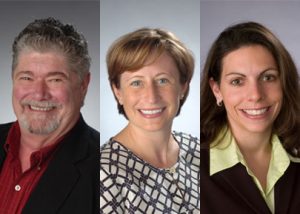 Faculty members from the Departments of Human Development & Family Science, Public Health, Food Studies & Nutrition, and Sport Management were honored for excellence in service, research and teaching with 2017 Falk College Faculty of the Year Awards. The honorees, who are nominated by their peers for outstanding performance and contributions to students, Falk College, Syracuse University and beyond, were recognized by Diane Lyden Murphy, Dean.
Faculty members from the Departments of Human Development & Family Science, Public Health, Food Studies & Nutrition, and Sport Management were honored for excellence in service, research and teaching with 2017 Falk College Faculty of the Year Awards. The honorees, who are nominated by their peers for outstanding performance and contributions to students, Falk College, Syracuse University and beyond, were recognized by Diane Lyden Murphy, Dean.